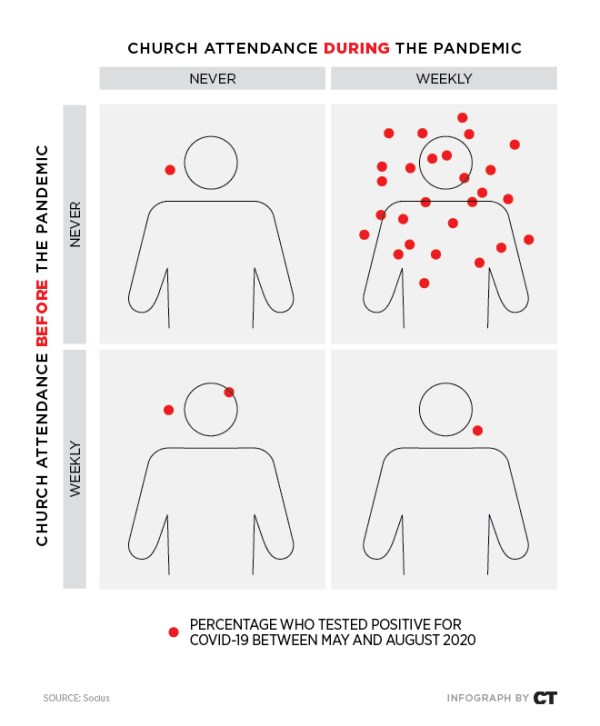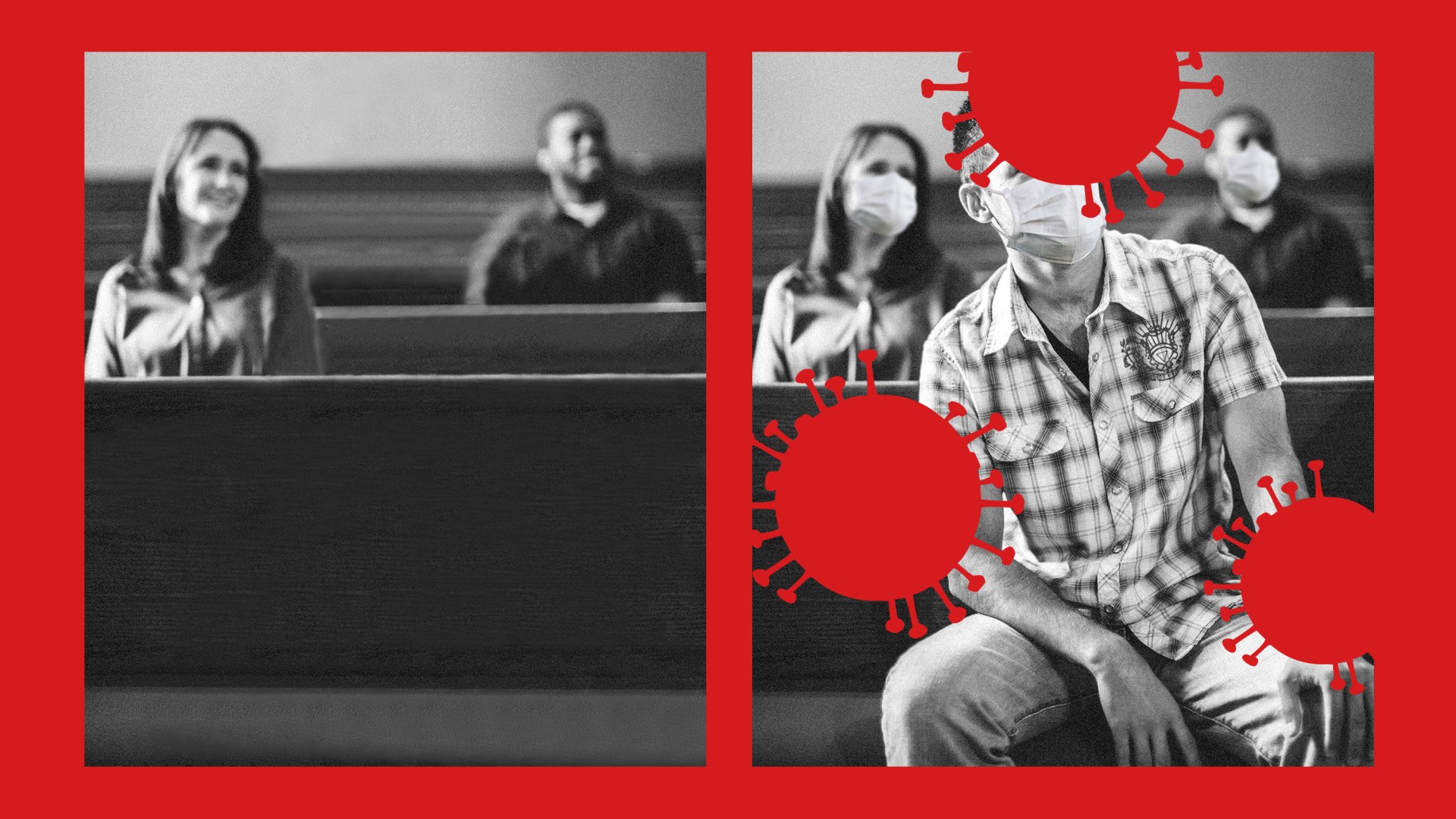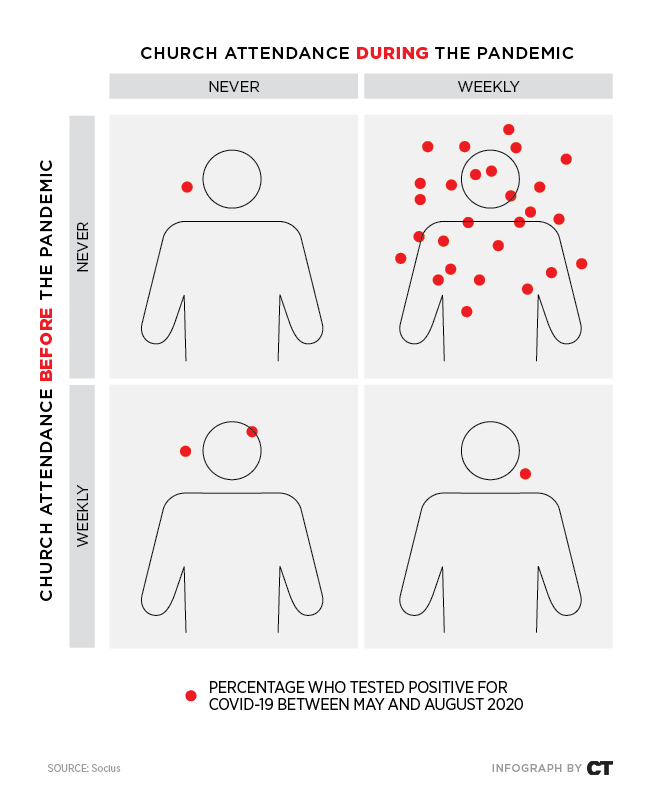People who went to church during the height of the COVID-19 lockdowns were generally more likely to catch COVID-19. This is fairly straightforward. Yet look a little closer, and the facts get a bit more perplexing.
The “association between attending in-person worship during lockdown and later testing positive for COVID-19 was limited primarily to those who were not previously frequent worship attendees,” according to a study published in the American Sociological Association journal Socius.
Sociologists Samuel Perry and Joshua Grubbs looked at a survey of 1,200 people during COVID-19 lockdowns in the spring and summer of 2020. They found that people who attended weekly church before the pandemic and continued attending, sometimes against health department recommendations, did not notably increase their risk of catching the coronavirus. But those who seldom attended before COVID-19 and started going weekly during the lockdowns did increase their chances. About 17 percent caught the coronavirus between the spring and summer of 2020.
The rates were even higher for those who had never attended before and started going weekly: 28 percent. The reasons are not clear. Perry and Grubbs say it doesn’t seem to be connected to age, race, or safety practices such as mask wearing. The only statistical difference was newly increased church attendance.













